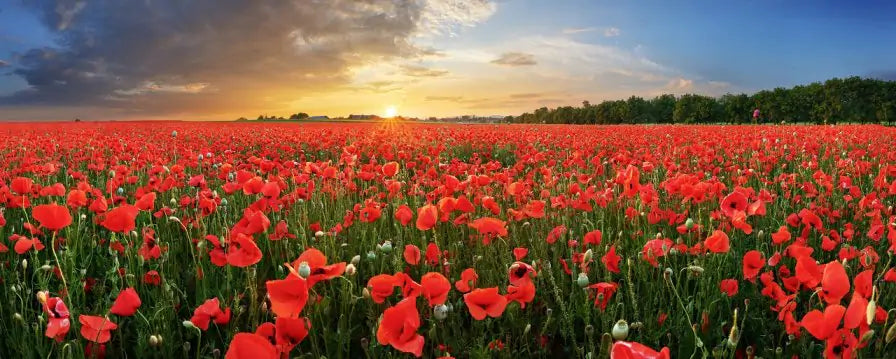Your basket is currently empty.
Shop NowRecycle Your Remembrance Poppies at Sainsburys

Recycle Your Remembrance Poppies at Sainsburys
Sainsbury's has been supporting The Royal British Legion’s Poppy Appeal for more than 23 years, and volunteers can sell poppies in their stores.
Last year, the supermarket raised more than £3.2 million through the store collections and through selling official merchandise, and all profits went to the appeal.
And it’s not just about letting the Royal British Legion sell poppies in their stores. Sainsburys staff have given their time to plant crosses in their Fields of Remembrance and to volunteer at their Poppy Day events, where the appeal fundraises using fun activities in city centres across the UK.
In 2016, Sainsbury’s staff volunteered for 200 hours, and took part in a military-themed muddy assault course at Black Park Country Park in Greater London.

Stores take the initiative
Sainsburys is the only place where you can recycle poppies after Remembrance Sunday, which helps to save money, energy, and raw materials by reusing or recycling the poppies that they have sold. One of the stores that is taking part in the recycling drive is the Sainsbury’s store in Darkes Lane, in Potters Bar. This is the fifth year that the store has held the recycling event, and poppies that are collected will be broken down into their separate parts and recycled or repurposed into new poppies for next year’s appeal. You can recycle your poppy at participating stores until the 30th November.
The poppy appeal
The poppy is worn as a symbol of remembrance to remember the men and women who have been killed in conflict. Remembrance events like Remembrance Sunday are held to mark the occasion.
The history of the poppy
During the First World War, many of the battles took place in bleak fields in Western Europe. In 1915, a Canadian Doctor called John McCrae wrote a poem about these fields, after he lost a friend in battle. The poem is called ‘In Flanders Fields,’ and it is one of the most famous wartime poems in existence.
The poppy became a symbol of remembrance because the red poppies in Flanders fields stood standing, even amid the destruction of war.
The famous poem inspired an American academic called Moina Michael to make red silk poppies and sell them. They were introduced to England in 1921, and the Royal British Legion ordered 9 million of the poppies and sold them on 11th November to commemorate the armistice. That was the first ever poppy appeal and it raised £106,000. The money raised was used to help veterans with employment and housing.
A year later, an army major set up a poppy factory in Aylesbury to employ disabled ex-servicemen. This factory is still in operation today and produces millions of poppies.
There was high demand in England, and Scotland too, so a factory was opened in Edinburgh in 1926 to make poppies only for Scotland. The Scottish version has 4 petals and no leaf, and they are handmade by disabled ex-servicemen.
